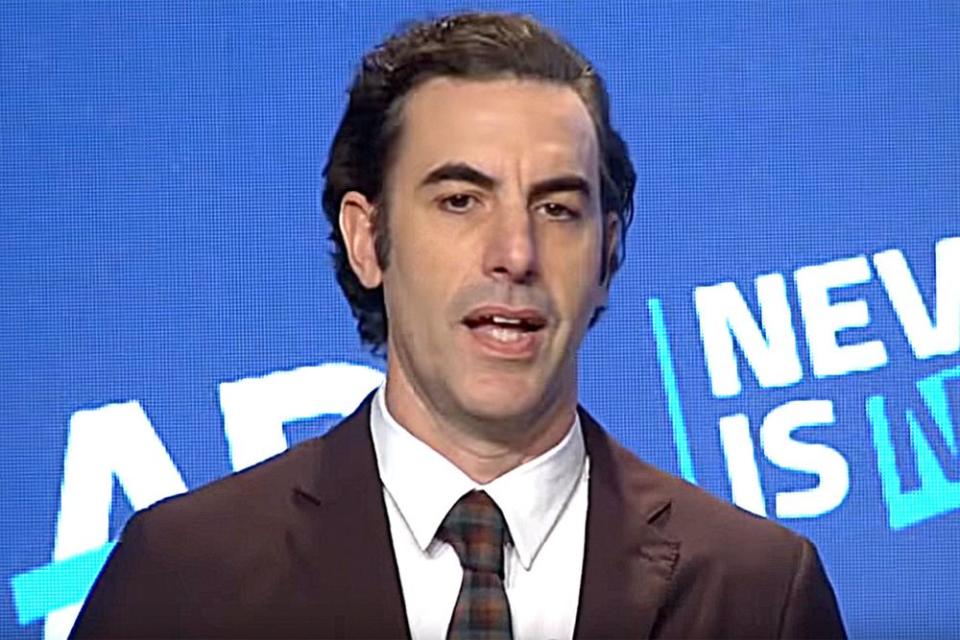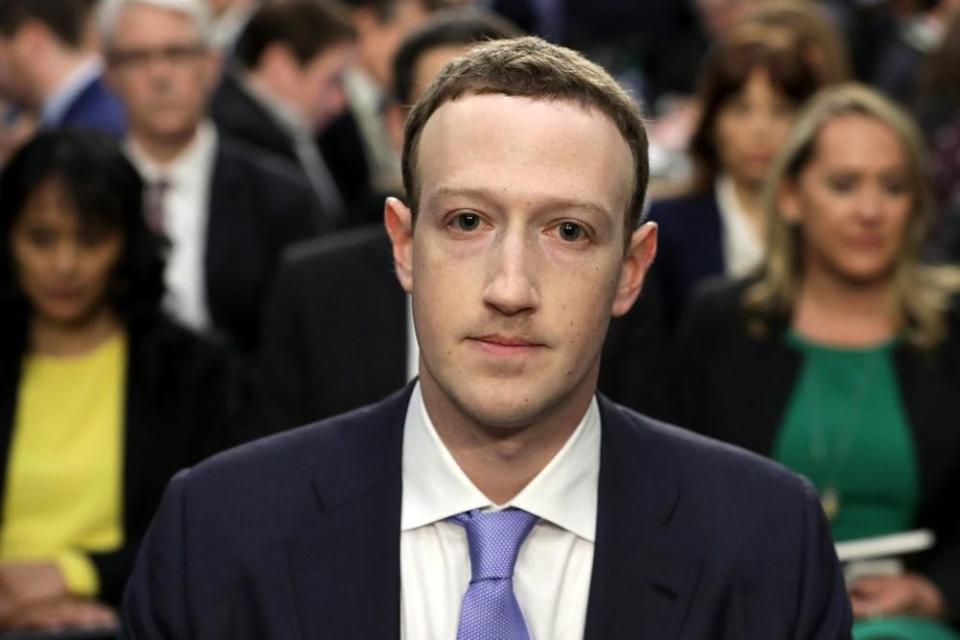Sacha Baron Cohen Slams Facebook and Says Company Would Have Let Adolf Hitler Buy Political Ads
Sacha Baron Cohen has some harsh words for Facebook and other tech giants, saying that major Silicon Valley companies provide places online for racism and hate speech to thrive.
The 48-year-old comedian went as far as to say that if Facebook had been around in the time of Adolf Hitler, the social media site would have allowed the German dictator to use the platform to spread his anti-semitic ideas.
“If you pay Facebook, it will run any ‘political’ ad you want, even if it’s a lie,” Cohen wrote in an op-ed published Monday in the Washington Post. The article echoed much of what he said last week at the Anti-Defamation League’s Never Is Now summit.
“It’ll even help you micro-target those lies to users for maximum effect,” he continued in the Monday op-ed. “Under this twisted logic, if Facebook were around in the 1930s, it would have allowed Adolf Hitler to post 30-second ads on his ‘solution’ to the ‘Jewish problem.'”
“Here’s a good way for Facebook to ‘live up to’ its responsibilities: Start fact-checking political ads before running them, stop micro-targeted lies immediately, and when ads are false, don’t publish them,” he added.

RELATED: Mark Zuckerberg Admits He’s Always Had a Hard Time Expressing Himself: ‘I Come Across as Robotic’
In Cohen’s near-25-minute speech addressing the Anti-Defamation League, the Borat star added that “Democracy, which depends on shared truths, is in retreat, and autocracy, which depends on shared lies, is on the march. Hate crimes are surging, as are attacks on religious and ethnic minorities.”
Cohen went on to say that those “dangerous trends” have something in common: “all this hate and violence is being facilitated by a handful of internet companies that amount to the greatest propaganda machine in history.”
The actor pointed out that companies including Facebook, YouTube, Google and Twitter have the ability to reach billions of people — but also create echo chambers of fake news.
“At this point there are still Holocaust deniers on Facebook, and Google still takes you to the most repulsive Holocaust denial sites with a simple click,” Cohen said later in the speech. “Denying [the Holocaust] is not some random opinion. Those who deny the holocaust aim to encourage another one.”
Facebook has since responded to Cohen’s comments, calling his sentiment a misrepresentation.
“Sacha Baron Cohen misrepresented Facebook’s policies. Hate speech is actually banned on our platform,” the tech giant said in a statement obtained by PEOPLE.
“We ban people who advocate for violence and we remove anyone who praises or supports it,” the statement continued. “Nobody — including politicians — can advocate or advertise hate, violence or mass murder on Facebook.”
Nonetheless, critics of the social media platform say that though hate speech may be banned, it still exists on Facebook. And concern over Facebook’s policies surrounding political advertising continues to mount as another presidential election looms.

RELATED: Sacha Baron Cohen’s Controversial Show Who Is America? Won’t Come Back for Second Season
Last month, Facebook CEO Mark Zuckerberg testified in front of the House Financial Services Committee and defended “free expression.”
“Some people accuse us of allowing the speech because they think that all we care about is making money. And that’s wrong,” he said, according to Market Watch.
“I can assure you that from a business perspective, the controversy that this creates far outweighs the very small percent of our business that these political ads make up,” he said. “We estimate that these ads from politicians will be less than 0.5 percent of our revenue next year. That’s not why we’re doing this.”
“Other people say that this policy is part of a broader pattern of us building a system that incentivizes inflammatory content to fuel our business,” Zuckerberg continued. “Again, to the contrary, I think that we have done more than any of the other major internet platforms to try to build positive incentives into our systems. We don’t let any of our News Feed or Instagram feed teams set goals around increasing time spent on our services. We rank feeds to encourage meaningful social interaction.”

